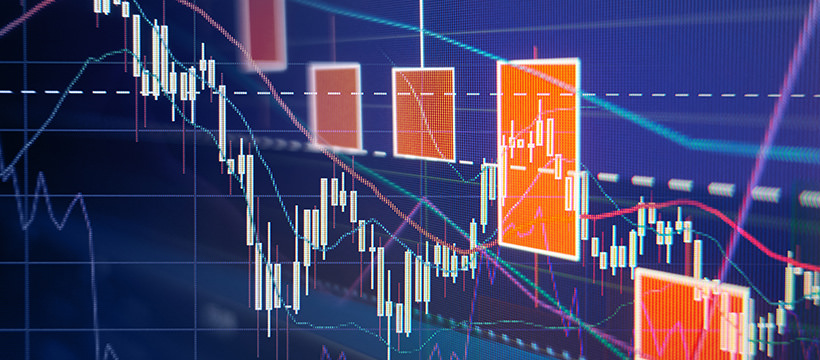Forex Trading: 5 Tips to Manage Emotions and Money
August 22, 2018

When practicing Forex Trading (but this applies to any other form of trading), there are two elements to pay the utmost attention to and manage carefully: emotions and money. When it comes to money, there can be no doubts. After all, we are talking about investments, and specifically speculative investments. Therefore, the main requirement for success in Forex trading is knowing how to manage money.
However, emotions also play an important role. In fact, it can be said that, in Forex Trading, money management and emotion management represent two sides of the same coin.
In the following article, we will focus on both aspects, offering five tips - some of which are "creative" - to deal with them effectively and productively.
Don't trade when you are upset
Unfortunately, daily life is full of stressful situations. Losing your temper is a danger you face every day. At work, with friends, with relatives... Getting angry is a daily occurrence. Therefore, it can happen that you trade after an argument, when you are in a state of emotional upheaval. Well, no matter how much you consider yourself "impermeable" to what happens in real life, and therefore able to separate - as if they were watertight compartments - the relationships of trading activity, it is best to avoid trading when you are upset.
The reason is simple: when you are angry or shaken, emotion takes over. Decision-making abilities decrease, the space for lucidity is reduced. All this generates obvious repercussions in trading activity.
The advice, therefore, is to delay entering the market, take some time to reflect, to calm down, to regain the serenity (hopefully) temporarily lost.
Don't get distracted while trading
This is also a rather recurring situation. Those who trade are often victims of distractions. Most of them derive from the state of perennial connection, therefore they are caused by the use of cell phones and PCs. However, the sources of distractions can be really numerous. Although in other areas, such as the professional one, it may seem normal and physiological to undergo "minimal" interruptions, lasting a couple of minutes (or even less), all this takes on a dangerous dimension when doing Forex Trading.
Also in this case, the reason is intuitive. Forex Trading, especially in the analytical and strategic phase, is a really complex activity, which requires an impressive amount of emotional, cognitive, intellectual, and even creative energies. Now, interruptions compromise the effective use of these energies, making the overall trading activity less performing.
The advice, therefore, is to completely isolate yourself from the context. Obviously, any emergencies must be dealt with... But only emergencies. In this case, you can adopt some intelligent and specific measures, such as assigning personalized audio notifications to certain people, and silencing everything else.
Risk only what you can afford to lose
This is a piece of advice that obviously concerns money management. However, it has emotional implications of a certain importance.
Why is it necessary to risk only what you can afford? It is evident: if you risk beyond your means, in case of defeat you are forced to suffer dramatic consequences not only in trading but also in real life. For example, you dip into your savings, you risk having to revise your lifestyle downwards.
Above all, you risk entering the vicious circle of the "gambler". Those who have lost more than they could afford, become anxious, and frenetically try to recover what they have lost. All this leads to even more reckless actions.
Therefore, risk only what you can afford to lose. To do this, however, you must always have the situation under control, that is, understand how much you are really risking at any given moment. The only way to produce this awareness in yourself is to practice good money management.
Don't gamble
Obviously, it is best to avoid gambling. All traders, even the least experienced, know that trading and gambling are two completely different things, at the antipodes of each other, irreconcilable. However, it is very easy to fall into the gambling trap, and remain entangled in its dynamics. Often, you fall into it without even realizing it. An emblematic situation is the one described in the previous paragraph, that is, when you suffer a significant and difficult to digest loss.
The only way to reduce the chances of gambling, albeit unconsciously, is to adhere to a strict discipline. You need to be faithful to your trading plan, and correctly follow the "supply chain" of trading activity: study, analysis, planning, action.
Of course, at the beginning it is not easy but it is good to immediately take responsibility and adopt a mature attitude, which has discipline as its main ingredient.
Stay positive
Pessimism is to be banned when doing Forex Trading. Unfortunately, it is one of the negative feelings that emerges most often. It is not surprising: investing in currencies, and frequenting a market that is full of pitfalls, means exposing yourself to dangers and losses. It is easy to lose and therefore it is easy to get discouraged. Pessimists, however, enter a vicious circle that reduces, in fact, the chances of turning the corner and recovering what was lost.
How to stay positive? It is a difficult self-generated work. It could all be reduced to an attempt at self-conviction, which however is effective only if enhanced by a "healthy" trading style, which is based on a sense of discipline and adherence to one's plan. After all, optimism must also have a solid basis, a concrete justification.
In case you really cannot recover or maintain positivity, you can proceed with strong measures. Nothing definitive, let's be clear: it is simply a matter of unplugging, of stopping trading for a while. This does not mean throwing in the towel, but simply recharging the batteries, waiting for a return (hopefully) under the banner of optimism and effectiveness.




